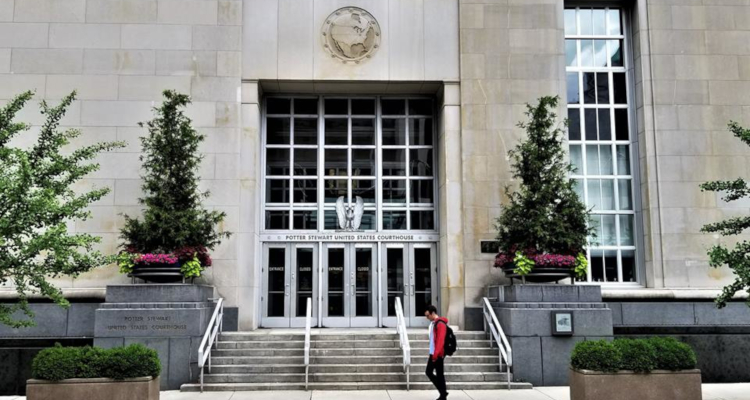Over four years after winning a case in front of the United States Supreme Court concerning its plan to bring a casino to the small northern Michigan village of Vanderbilt and the Bay Mills Indian Community has been forced back to federal court.
Tribe trailblazed aboriginal gaming:
According to a Wednesday report from Indianz.com, the Bay Mills Indian Community was one of the first aboriginal groups to open a full-fledged casino in the United States, thanks to the 1984 premiere of its 250-slot Kings Club Casino in the tiny Chippewa County community of Brimley. It later inaugurated its larger Bay Mills Resort and Casino in the Upper Peninsula and wanted to capitalize on the subsequent success of both venues by opening a third such tribal enterprise in Vanderbilt.
Brief life for third casino:
As such, the federally-recognized tribe launched its Vanderbilt casino in late-2010 but was soon forced to close the small Otsego County facility after the state took it to court over claims that it was illegal. But, May of 2014 saw the United States Supreme Court rule by a narrow five-to-four margin that the state of Michigan could not sue the Bay Mills Indian Community because neither the tribe nor Congress had waived their sovereign immunity.
In writing for the majority, United States Supreme Court Justice Elena Kagan, explained that this had protected the Native American community ‘from this legal action’ as it meant that the state possessed no power to prohibit the tribe from conducting gaming on its reservation or ‘other Indian lands.’

Summary judgment motion filed:
Undaunted, Michigan later filed a motion with the United States Court of Appeals for the Sixth Circuit seeking a summary judgment on whether the site for the Vanderbilt casino is indeed located on ‘Indian lands.’ The state’s argument contends that the plot should not be classed as aboriginal despite the fact that it was purchased using some of the $8.3 million given to the tribe as part of 1997’s Michigan Indian Land Claims Settlement Act.
In addition, the state cited the Indian Gaming Regulatory Act of 1988 as mandating that tribes can only operate gaming on lands over which they exercise jurisdiction and that the Michigan Indian Land Claims Settlement Act does not preempt state gaming laws.
Vanderbilt site is ‘Indian lands’:
However, the tribe has reportedly countered by stating that the Michigan Indian Land Claims Settlement Act dictates that all property purchased with such proceeds ‘shall be held as Indian lands are held’. Furthermore, Bryan Newland, a lawyer and Tribal Chairman for the Bay Mills Indian Community, proclaimed that Vanderbilt ‘is located within the lands our tribe ceded to the United States’ via 1836’s Treaty of Washington.
In a statement from Indianz.com, Newland commented…
“Our tribe exercises jurisdiction over lands throughout the ceded territory including Vanderbilt by regulating hunting, fishing and other activities by Bay Mills tribal members.”

Ruling expected soon:
The site further reported that a ruling on the state’s summary judgment petition is expected over the course of the next few weeks while Newland declared that he just wants an ‘opportunity to make our case and to be heard.’
Newland continued…
“Bay Mills pioneered Indian gaming in Michigan by opening the first tribally-operated casino in the state more than three decades ago. Since then, a half-dozen new tribes have been recognized in Michigan.”



